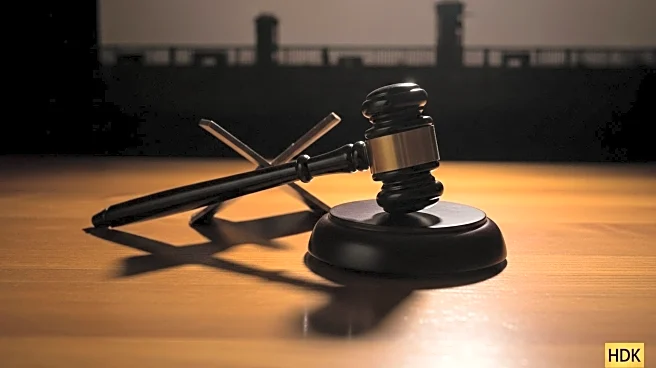What is the story about?
What's Happening?
Kilmar Abrego Garcia, an immigrant previously expelled to El Salvador and brought back to face criminal charges, has been detained again at an ICE office in Baltimore. The Trump administration plans to deport him to Uganda, despite a recent release from custody. Abrego Garcia's lawyers have filed a habeas petition to prevent his removal, with a judge indicating a swift review of the petition. The government is currently barred from re-expelling him, and he remains in an ICE facility in Virginia. His legal team accuses the Trump administration of attempting to coerce a guilty plea on human smuggling charges, offering relocation to Costa Rica if he complies.
Why It's Important?
This case highlights ongoing tensions and legal complexities surrounding immigration enforcement in the U.S. The Trump administration's handling of Abrego Garcia's situation raises concerns about due process and the rights of immigrants facing deportation. The potential deportation to Uganda, a country with no apparent connection to Abrego Garcia, underscores the administration's aggressive stance on immigration. The outcome of this legal battle could set precedents for similar cases, impacting how immigration laws are applied and interpreted, particularly concerning coercion and plea deals.
What's Next?
The judge's decision on the habeas petition will be crucial in determining Abrego Garcia's immediate future. If the petition is successful, it could prevent his deportation and allow for further legal proceedings. The Trump administration may face increased scrutiny and legal challenges from immigrant rights groups and advocates. The case could influence public opinion and policy discussions on immigration enforcement and the treatment of immigrants within the U.S. legal system.
Beyond the Headlines
The ethical implications of coercing guilty pleas from immigrants raise questions about the fairness and integrity of the U.S. justice system. This case may prompt broader discussions on the balance between national security and human rights, as well as the moral responsibilities of government agencies in handling vulnerable populations.
















